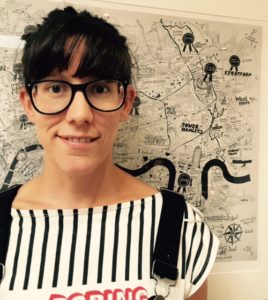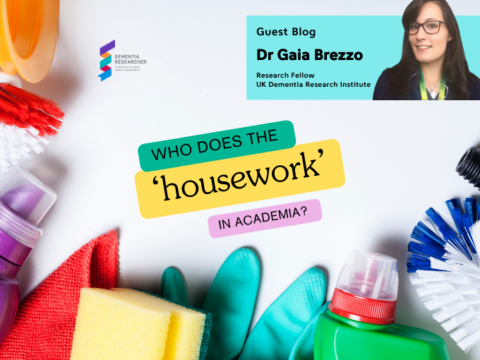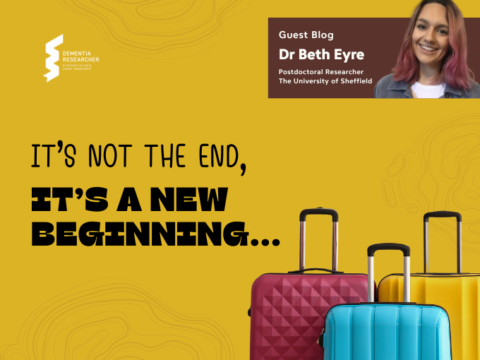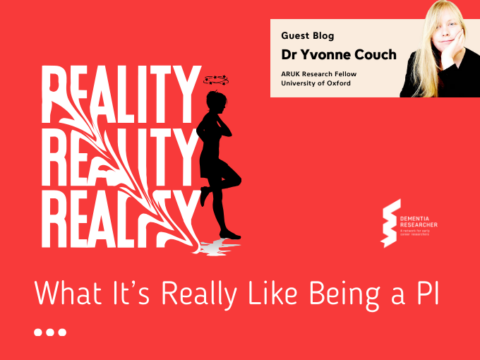When I completed my NIHR application for my fellowship funding I had to list the conferences I would likely to attend. In listing these it got me considering the dissemination element of my research work before I had even started the research itself. At the time I felt this was a little over confident – what if I had nothing to share!? But actually, it was simply good practice. Both strategically and practically. In order to maximise the potential impact of your work you need to share it, and thinking about a strategy is a really useful learning experience for an early career researcher. There are heaps of conferences you could go to but choosing a couple and including them in your Gannt chart from the start helps you fit dissemination into the arc of your project. And conferences cost money – conference fees, flights and accommodation all add up. So, planning ahead and being provided with the means (the NIHR is rather wonderful) to attend these has been rather novel.
But that is not where it ends. One of the first things to decide once you’ve chosen a conference is to consider whether to and what to submit in an abstract. To be honest I am one of those weirdos who loves to talk. I know a poster session is just as valuable but I often feel frustrated because I just want to talk very loudly about speech and language therapy for people with dementia. That said, I have many colleagues who prefer the more personal networking opportunities a poster can offer, and being able to deal with questions more privately instead of doing this with a large audience.
 Writing this blog right now is actually rather appropriate as I am currently preparing for a forthcoming conference myself, and a conference where I don’t know the ‘field’ so well. Usually I go to conferences with health professionals or clinical academics. This is going to be a different slant- a conference with methodologists. I am a little nervous and have prepped my slides fairly far in advance, I have shown them to my colleagues and my supervisor and sought feedback. I usually go for a slide per minute. And I often include a video. This is where it is really important to consider the audience. For a start someone once told me- you can’t and won’t make everyone happy. But if it’s mainly academics, choose a more seriously presentation style, include data and methods. If it’s mainly health care professionals – think about what they can actually use in their clinical practice- less methods more impact. If it’s people living with dementia and their families – perhaps more images and clearer accessible and concise content. What is the key message that could change their lives?
Writing this blog right now is actually rather appropriate as I am currently preparing for a forthcoming conference myself, and a conference where I don’t know the ‘field’ so well. Usually I go to conferences with health professionals or clinical academics. This is going to be a different slant- a conference with methodologists. I am a little nervous and have prepped my slides fairly far in advance, I have shown them to my colleagues and my supervisor and sought feedback. I usually go for a slide per minute. And I often include a video. This is where it is really important to consider the audience. For a start someone once told me- you can’t and won’t make everyone happy. But if it’s mainly academics, choose a more seriously presentation style, include data and methods. If it’s mainly health care professionals – think about what they can actually use in their clinical practice- less methods more impact. If it’s people living with dementia and their families – perhaps more images and clearer accessible and concise content. What is the key message that could change their lives?
I always talk through the basic slides aloud to myself, and I do a timed rehearsal (or twenty) just to make sure I can say everything in the allotted time. I try to do this to someone, often my poor husband who is now an expert in speech and language therapy for dementia. This is really helpful for getting the wording right. Occasionally if I have a very short time slot I have scripted my talks. The only problem here is that you don’t want to sound like you are reading from the slides, nor do you want to sound like you are reading a script. Ideally you want a natural, almost conversational tone.
The other thing to consider at a conference is who is attending, do you have a list of attendees. If you do scope the list in advance and plan who you might like to meet. Someone once suggested aiming to walk away from a conference with 5 emails, and then following up on at least one of them, was a good networking strategy. Conferences are a brilliant networking opportunity. Do spend time getting to know people, stay for a drink afterwards and make sure they remember you.
But perhaps most importantly – enjoy it. Conferences can be a great perk of academia. Enjoy the food, the setting, the company. This is a chance to get together with others, absorb their knowledge (plan what sessions you are going to go to- and don’t feel you must go to everything) and tell them about your research too. I like to think of it as a bit of a celebration of minds, hopefully with a conference goodie bag, a good lunch and at least one conference drinks reception.
Author
Anna Volkmer is a Speech and Language Therapist and NIHR Doctoral Research Fellow working in Language and Cognition, Department of Psychology and Language Sciences, University College London. Anna is researching Speech and language therapy interventions in language led dementia.
You can follow Anna on Twitter Follow @volkmer_anna

 Print This Post
Print This Post




